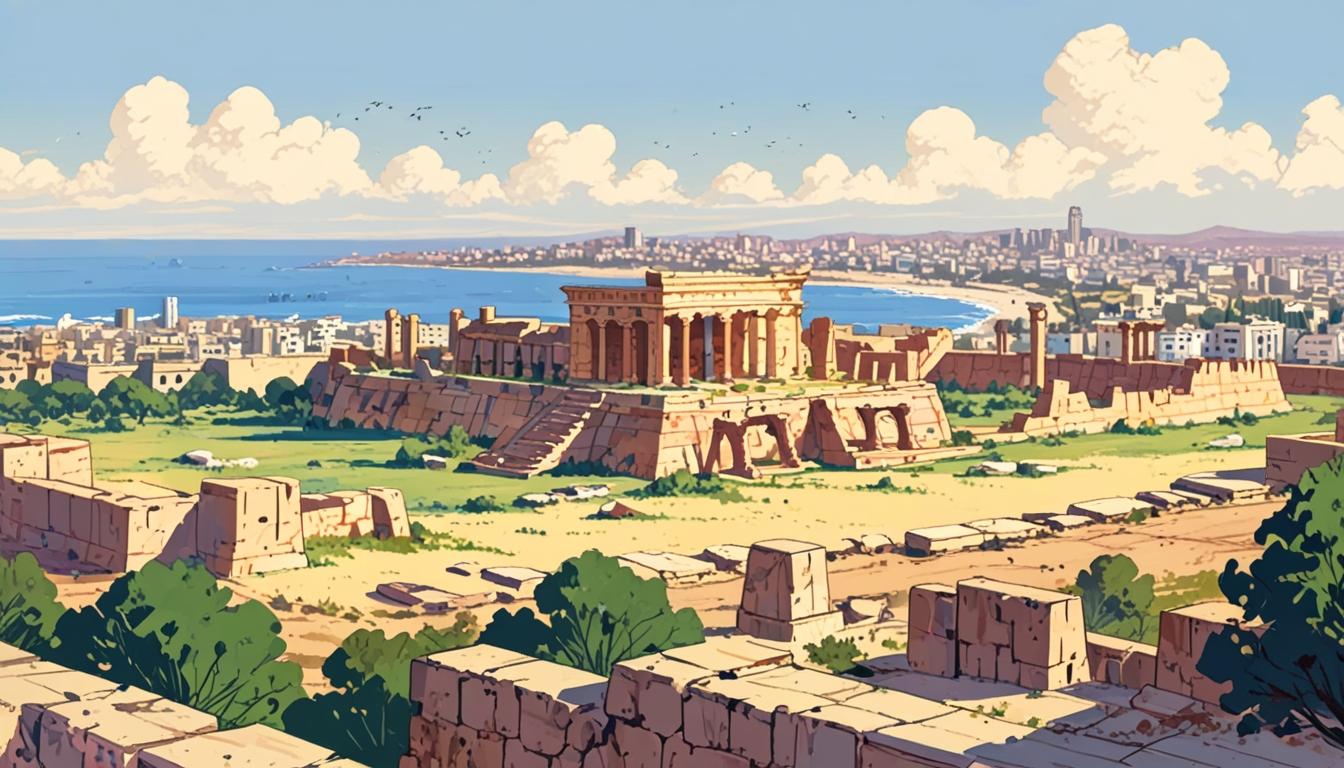A country grappling with ongoing political instability and armed conflict has unexpectedly become a popular destination for thrill-seeking tourists, challenging traditional perceptions of safe travel. While many UK holidaymakers typically opt for established vacation spots such as Spain, Greece, or Turkey, a growing number of adventurous travellers are venturing into nations widely regarded as hazardous, a trend known as 'danger tourism'.
These travellers are often drawn by the prospect of documenting their journeys on social media platforms like TikTok, seeking viral popularity by exploring countries that the British government actively advises against visiting. Among these destinations are Iran, Syria, and notably Libya, which, despite its complex security landscape, reportedly attracts around 90,000 visitors annually.
Libya, located in the Maghreb region of North Africa, remains mired in political turmoil since the fall of Muammar Gaddafi in 2011. The country’s fragile political landscape is characterised by sporadic armed conflict between competing factions and a limited central authority, despite a United Nations-facilitated ceasefire aimed at reconciling east and west armed groups. The Foreign, Commonwealth and Development Office (FCDO) continues to classify many parts of Libya as high risk, particularly advising against all travel to large swathes of the country. Travel to major cities like Tripoli, Benghazi, and Misrata is discouraged except for essential purposes.
The FCDO has issued stark warnings about the risks involved in visiting Libya. It highlights concerns such as indiscriminate attacks, the targeting of government and security buildings, and the threat posed to foreign nationals, who are considered potential high-value hostages by militant groups. A particularly alarming incident cited was a car bombing near a Tariq Ibn Ziyad Brigade camp in Umm el Araneb in southern Libya in April 2022, which resulted in injuries to three individuals. Islamist extremist groups, including Islamic State and Daesh, have claimed responsibility for attacks in the region, with fatal bombings reported in the Fezzan province in 2021.
Violence between armed groups remains unpredictable and can erupt without warning. For instance, clashes in Tripoli in 2022 led to 32 deaths and over 150 injuries. More recently, in August 2023, tensions flared in central Tripoli, causing temporary road closures and the shutdown of Mitiga Airport. The security situation is further complicated by the involvement of foreign forces and mercenaries, with the Interim Government of National Unity exerting limited control over national security.
Despite these warnings, some adventure travellers recount positive experiences in Libya. Hudson and Emily, a couple dedicated to visiting every country globally, shared their impressions after travelling to Libya in 2024. They recounted feeling safe throughout their visit, supported by the presence of a vigilant bodyguard who even accompanied them during private moments. The couple expressed admiration for the ancient Leptis Magna archaeological site, the scenic appeal of Tripoli, and the friendliness of local people. "We felt safe the whole time there," they told the Mirror, adding, "I honestly never would have imagined we'd get to see some of these countries and I just feel so grateful."
Nevertheless, British nationals travelling to Libya should be aware of the limited assistance available from the UK government. In the event of emergencies such as attacks, arrests, or deaths, consular aid can only be provided through the British Embassy situated in Tunisia. This presents logistical challenges for travellers requiring UK government support.
Libya’s volatile environment, paired with ongoing military conflicts and fragile governance, poses significant risks for visitors. Yet for a determined subset of tourists, the country’s cultural heritage sites and the opportunity to experience places off the beaten path are proving increasingly attractive. The contrast between official caution and the lived experiences of some tourists highlights the complex dynamics shaping contemporary travel trends.
Source: Noah Wire Services
